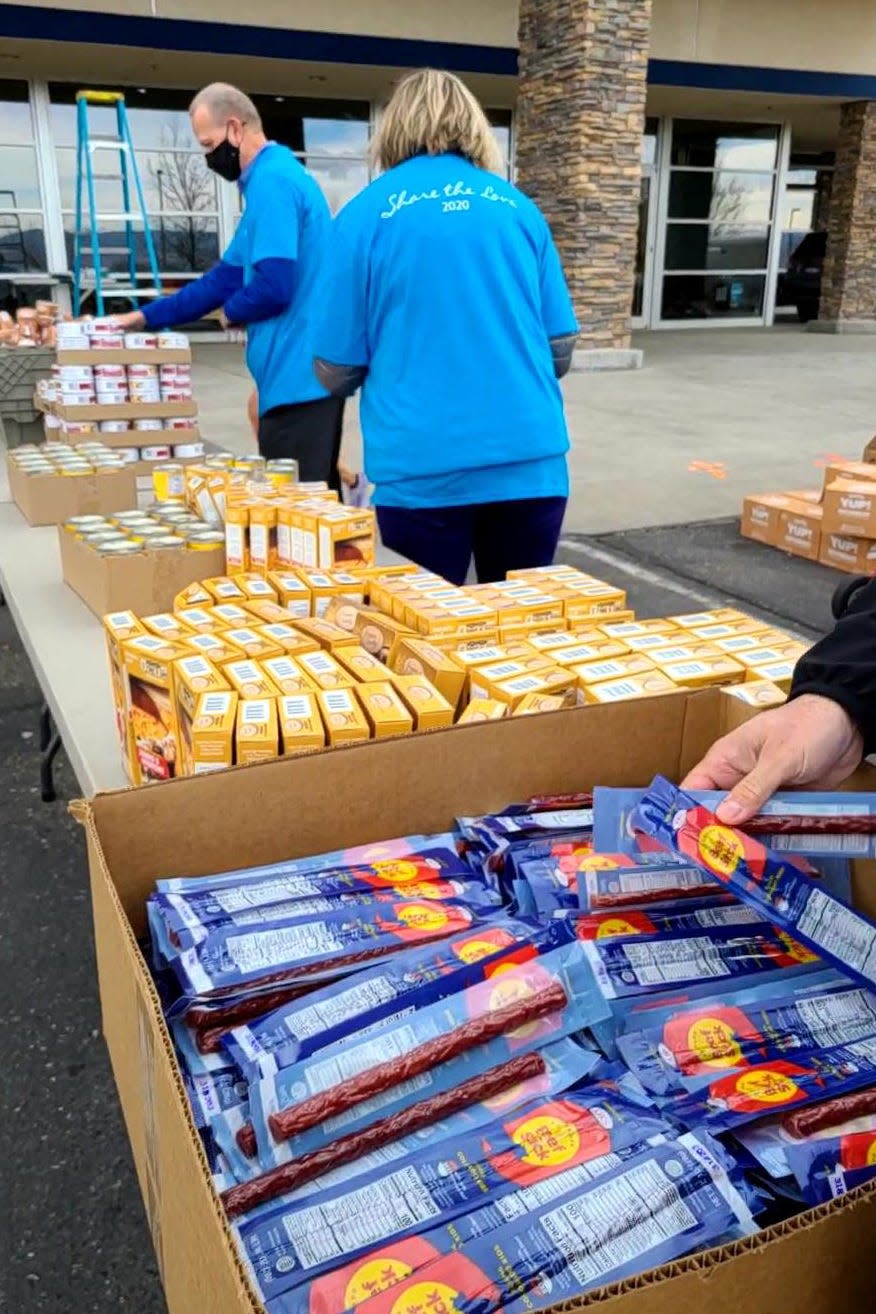Beef donations provide unique training for students

The Colorado State University animal science department has teamed up with a unique philanthropic effort to provide real world, hands-on learning opportunities for students.
“We are creating students that will be leaders in the field and know how to use these new tools, but most importantly they’ll know how to give back,” said Jordan Levi, the original creator of the “Beefsticks for Backpacks” program.
Levi is founder of Arcadia Asset Management, which oversees cattle feeding investments, and co-founder of the private marketing platform Fed Cattle Exchange. He currently represents Colorado on a special National Cattlemen’s Beef Association working group that is looking into voluntary industry-driven methods to increase negotiated trade within the fed cattle market.
Levi and his wife Shannon were looking for a way to support their new community after moving to Colorado, when they stumbled on the importance of making more shelf-stable beef available to kids in need.
More agriculture news: Engagement and transparency improve technology acceptance
As Levi explained during a recent informational webinar, local charities in Loveland were doing a great job of sending backpacks home with food-insecure school kids on the weekends. However, those weekend backpacks often lacked high quality protein.
From that realization, the idea for the Beefsticks for Backpacks program was born.
“It promotes an agricultural product and a distinctly Colorado product,” Levi said.
Soon after he began raising funds and putting together the necessary expertise, Levi reached out to Robert Delmore, meat science professor and director of the JBS Global Food Innovation Center, about getting the university involved in the campaign.
Delmore immediately saw the need.
By his estimate, at least 360,000 kids in Colorado are food insecure. And the need is growing. According to Hunger Free Colorado, 1 in 3 children are now at risk of hunger due to the pandemic.
“Federal programs do a great job on free and reduced meals during the week, but on the weekends there’s a challenge,” Delmore noted during the webinar.
The project, which started out serving one county, has since grown to distribute 15,000 sticks a week to eight counties statewide, and Levi wants to see it expand even further.
To support the initiative, CSU’s meat lab hired a production manager, Kyle Harrington, to help oversee it.
“Without CSU and the meat center and Ram Country Meats, this couldn’t be done,” Levi said.
Next up, Levi envisions selling the sticks on a retail platform for $2 each and also developing them into a fundraising tool for organizations. The organization would keep 50 cents of every stick sold while donating an additional stick to a child in need.
“We’re trying to find ways to make this charity self-funding,” Levi said.
In addition to philanthropy, the program is a learning opportunity for students. Currently 23 students work at the Food Innovations Center.
The beef sticks are made from scratch with raw material that comes into the facility every other week from JBS in Greeley as part of routine production. The frozen product is put on a truck and delivered in amounts of roughly 13,000 pounds at a time. Students are involved in the entire process of tempering, grinding, mixing, stuffing, smoking, cooking, chilling and packaging the sticks, Delmore said.
“All of that work is done by a group of students, and it’s a big project,” he explained.
Much of the equipment they use was donated by manufacturers who also saw value in supporting the program.
According to Delmore, “virtually every item we use is gifted.”
Levi said the project’s philanthropic mission is a great fit with the university.
“As we look at this generation of students, they require some type of purpose outside of just making money,” he said.
A long list of individuals, companies and funding partners have been involved in pulling off what Delmore said is probably unique among land grant universities.
“I don’t think it’s been done in this way before,” he said. “We are taking a business approach, using university resources, and it’s all for the benefit of philanthropy.”
More agriculture news: USDA seeks ‘climate-smart’ demonstration projects
More information about the program and how to donate to the cause is online at Beefsticks.org.
This article originally appeared on LA Junta Tribune: CSU students get hands-on experience through beef donations

